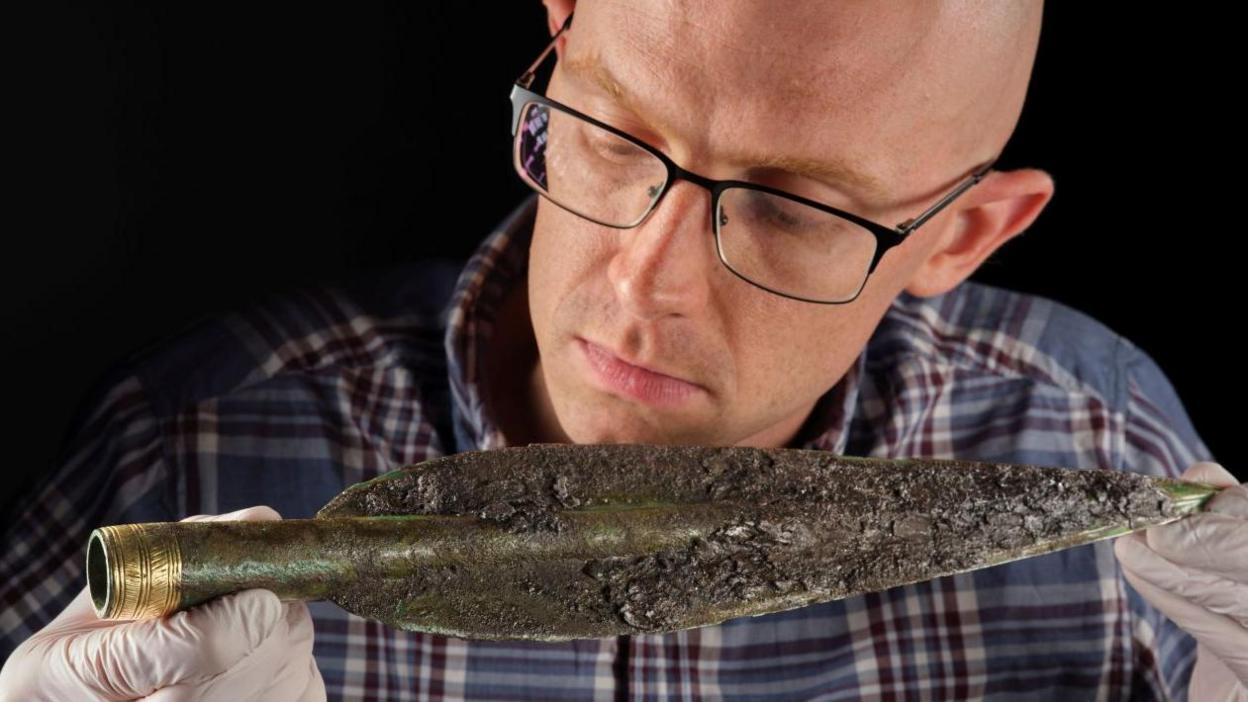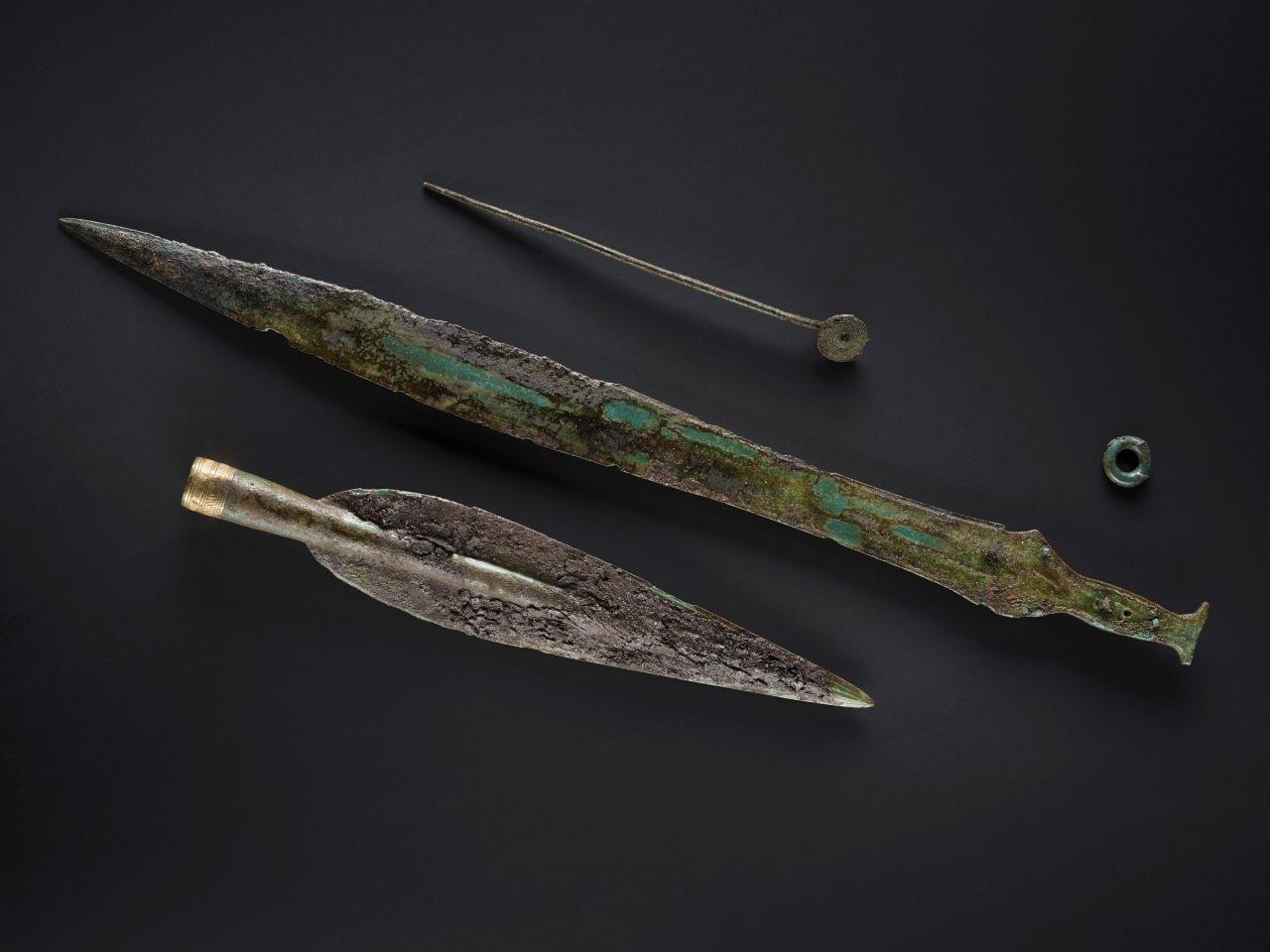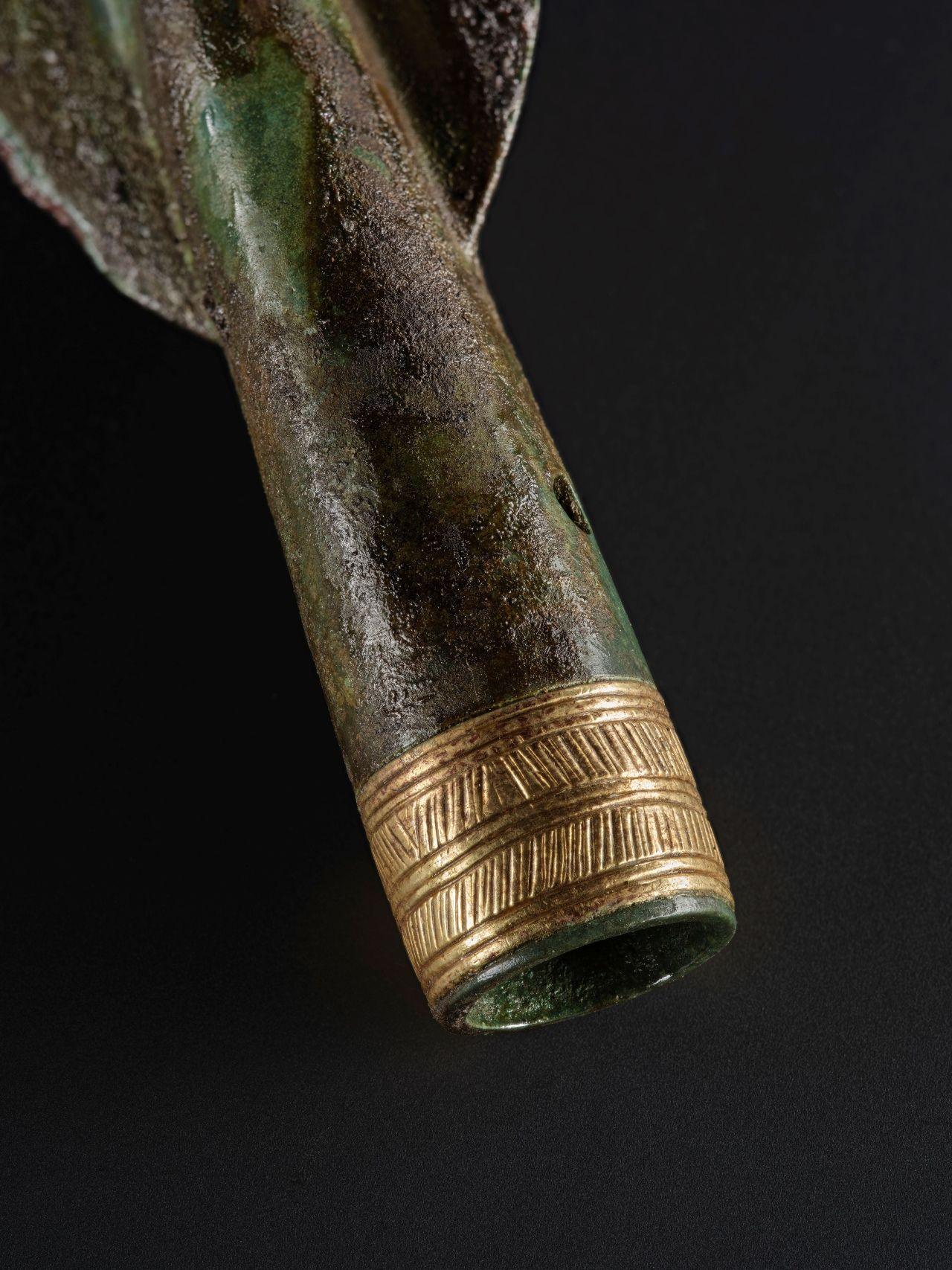'Remarkable' Bronze Age hoard to go on display

Matthew Knight, senior curator of prehistory at the museum, said the hoard was a "remarkable discovery"
- Published
A Bronze Age hoard discovered on land that was due to be turned into football pitches will go on display for the first time next year.
The Carnoustie Hoard, named after the Angus town near where it was unearthed in 2016, includes a rare spearhead decorated with gold, and a bronze sword in a wooden scabbard.
Dating from about 1120-920 BC, experts said the find hinted at the existence of a local warrior elite in the Angus area more than 3,000 years ago.
The hoard will go on display as part of the Scotland's First Warriors exhibition, which opens in June at the National Museum of Scotland in Edinburgh.

The hoard will be included in an exhibition to be held in Edinburgh next year
Matthew Knight, senior curator of prehistory at the museum, said the hoard was a "remarkable discovery".
He said: "This is the first time we've encountered weapons buried at a settlement where people lived.
"It forces us to reconsider relationships between people and these objects and enriches our picture of life in Bronze Age Scotland.
"On top of that we have the exceptional survival of wood, textiles and animal skin that express how much these objects were valued."

The spearhead is decorated in gold
The hoard was unearthed in 2016 by Guard Archaeology in an area that was to be developed into two football pitches.
It was acquired by the National Museum of Scotland in May 2024, along with pieces from more than 155 prehistoric pots excavated from the same site.
The spearhead features an intricately-decorated gold-bound socket and is one of only two such examples known from Scotland.
The sword is still sheathed in the remains of a wooden scabbard, making it the first Bronze Age sword in a scabbard to be found in Scotland.
The exhibition, which also features a number of never-before-seen archaeological discoveries from across Scotland, spans the Neolithic period to the coming of the Romans.
It will run at the museum in Edinburgh from 27 June 2026 until 17 May 2027.